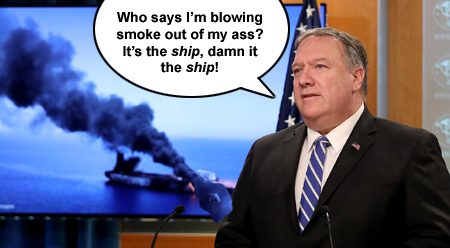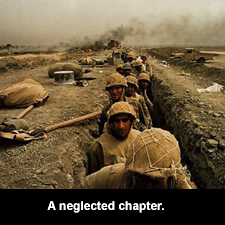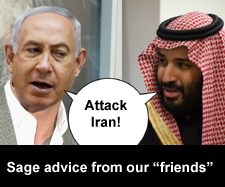As someone who tends to pay attention to these things, I watched the first night of the January 6th Committee hearings with some interest. MSNBC spent a week winding up to these public meetings, and the committee did not, in my estimation, disappoint. I don’t know who in America remains persuadable on this issue, but it’s hard to watch the proceedings and not come away thinking about what an outrage January 6 was.
When I say January 6, I mean the whole enchilada. The day was just the culmination of a long process which the president at the time set in motion. As shocking as the attack was – and I, like many, watched it unfold with disbelief – Trump had long demonstrated his contempt for elections, and spent much of 2020 undermining the credibility of mail-in and absentee ballots. This was because he knew that Democrats were more likely to opt for vote by mail than to show up at the polling place. The hearings are highlighting this dynamic, and it’s all to the good.
Haldeman’s racist lawyer
Not surprisingly, many commentators have invoked the Watergate hearings back in 1973 to give context to the current proceedings. I’m old enough to remember these being broadcast on television, though I can only recall the high (or low) points, like when Haldeman’s shriveled old lawyer called Senator Dan Inouye – a wounded WWII veteran – “that little jap”. That was world-class.
The thing that’s notable about the Watergate scandal was its iceberg-like quality of revealing just the tip of what was hidden from view. Author Jefferson Morley talked about this on Majority Report this week. Several of Nixon’s “plumbers” were CIA assets or agents with a long history of involvement in the Agency’s abuses at home and overseas. More of the truth came out during the Church Committee investigation a few years later, but it was kind of a controlled burn, according to Morley. (Practically at the same time as Church, Cuban exile Agency assets blew up Orlando Letelier on Embassy Row in D.C. and the Cuban Olympic Fencing team in mid-air.)
Reagan’s little game
Perhaps the second most well-known Congressional investigation was Iran Contra during the Reagan administration. This, too, represented a tiny corner of a much larger enterprise. The select Committee (led by Inouye, incidentally) looked into Reagan’s circumvention of the Congress’s law barring direct aid to the Contra terrorists operating in Nicaragua with our assistance. (We had essentially created the force out of thin air.) The crime was breaking the law passed by Congress, not the persecution of Nicaraguans.
Beyond that, though, Reagan’s team headed by Oliver North and General Secord sold TOW missiles and some spare parts to the Iranian government, which was defending itself against an invasion by Saddam Hussein’s Iraq – an invasion supported by the United States! Interestingly, very little about America’s role in the Iran-Iraq conflict came to light through these hearings. Neither did the committee touch on how the U.S. government was supporting murderous dictatorial regimes in El Salvador, Guatemala, Honduras, and elsewhere.
Old fashioned grift and graft
The January 6th Committee proceedings are looking at something kind of different. This is more garden variety corruption and authoritarian tendencies, though as always, racism is part of the story. Trump tried to lie his way into permanent status as president, and has thus far failed. He bilked his own supporters out of hundreds of millions of dollars, saying they were contributing to a legal defense fund. Guy has no shame.
I guess the thing that ties them all together is authoritarianism and a strong desire to override the will of the people, either by discounting their votes or ignoring their elected representatives. That much hasn’t changed.
luv u,
jp



 One such story is the Iran-Iraq war (1980-88). which I have mentioned previously in the blog over the years. This, in my opinion, is one of those seminal conflicts that set the stage for much that followed in this unfortunate region. The United States and U.S. allies in Europe and the Persian Gulf (particularly Saudi Arabia and the UAE) played a central role in this horrendous war, a role which has virtually been expunged from pop culture history. One example is the
One such story is the Iran-Iraq war (1980-88). which I have mentioned previously in the blog over the years. This, in my opinion, is one of those seminal conflicts that set the stage for much that followed in this unfortunate region. The United States and U.S. allies in Europe and the Persian Gulf (particularly Saudi Arabia and the UAE) played a central role in this horrendous war, a role which has virtually been expunged from pop culture history. One example is the It’s a war that Bibi doesn’t want to fight, and with good reason. Sure, they have undeclared nuclear weapons – hundreds of them – but those are pretty much useless beyond their value as an end-of-the-world threat. The fact is, Israel can’t win a conventional war with Iran, and they know it. Iran would be a difficult adversary, as well as a vast territory to subdue and occupy – it has “strategic depth”, as Col. Lawrence Wilkerson has pointed out. But honestly, when was the last time Israel won an actual war? 1973? Don’t say Lebanon – sure, they drove the PLO out of Beirut (at an enormous cost to the population), but by no means did that end positively for them. Their armed forces have suffered from too much colonial population control – thugging the Palestinians, in essence. But they still want to overthrow the Iranian regime. That’s where we come in.
It’s a war that Bibi doesn’t want to fight, and with good reason. Sure, they have undeclared nuclear weapons – hundreds of them – but those are pretty much useless beyond their value as an end-of-the-world threat. The fact is, Israel can’t win a conventional war with Iran, and they know it. Iran would be a difficult adversary, as well as a vast territory to subdue and occupy – it has “strategic depth”, as Col. Lawrence Wilkerson has pointed out. But honestly, when was the last time Israel won an actual war? 1973? Don’t say Lebanon – sure, they drove the PLO out of Beirut (at an enormous cost to the population), but by no means did that end positively for them. Their armed forces have suffered from too much colonial population control – thugging the Palestinians, in essence. But they still want to overthrow the Iranian regime. That’s where we come in. Anyway, there was the usual stories about boys choirs singing “Death to America!”, the “Down with Israel” chants, etc. (Probably could hear that in Times Square if you listen hard enough.)
Anyway, there was the usual stories about boys choirs singing “Death to America!”, the “Down with Israel” chants, etc. (Probably could hear that in Times Square if you listen hard enough.)